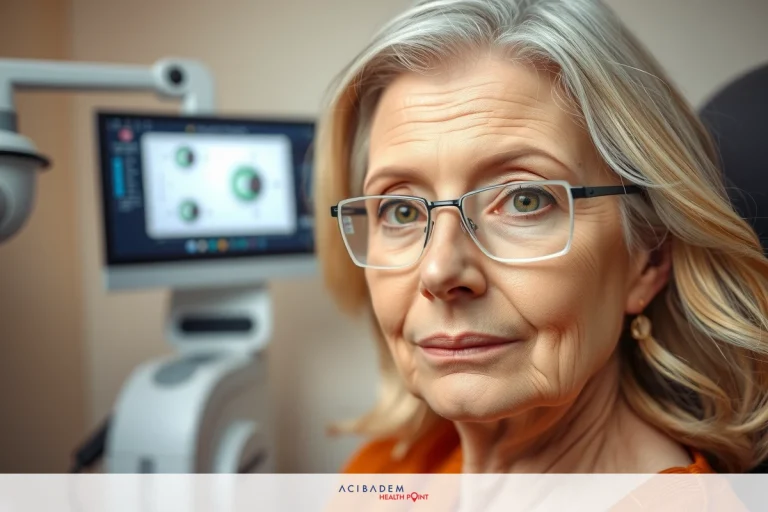Can LASIK Help Aging Eyes?
Can LASIK Help Aging Eyes? LASIK, a vision correction method, has proven beneficial for many individuals. Yet the question persists – can it truly aid aging eyes? When age begins to take its toll on our vision, we start seeking possible remedies. This brings us to consider LASIK and its potential benefits for those with aging eyes.
The positives of choosing LASIK are manifold. It’s not just about improving sight; there’s much more at stake here. Age-related ocular changes often present unique challenges that require careful thought before opting for any form of correction procedure like LASIK.
Before leaping into this decision though, certain factors need thorough consideration. Each individual eye condition is different and hence requires a tailored approach towards treatment planning. Understanding these aspects will assist in making informed decisions regarding whether or not to undergo such treatments.
How LASIK Can Improve Vision
LASIK stands as a beacon of hope for those with aging eyes. This revolutionary procedure has made it possible to correct vision problems that were once thought irreversible. The main objective of LASIK is its ability to reshape the cornea, which in turn helps light entering the eye to be properly focused onto the retina. Consequently, clearer vision can be achieved.
The benefits extend beyond merely correcting nearsightedness or farsightedness. Aging eyes often struggle with presbyopia – an age-related condition where close-up objects appear blurred due to loss of elasticity in the eye’s lens. With LASIK, this issue can also be addressed effectively by creating monovision; one eye is corrected for distance and another for near vision.
However, it’s important not to overlook that each individual’s ocular conditions are unique and hence how much improvement one may experience from LASIK could vary widely. For example, individuals suffering from cataracts might not see significant improvements after undergoing LASIK since this surgery does not address clouding of lenses which characterizes cataracts.
While considering all these aspects, we must remember that although improvements in visual acuity brought about by LASIK can greatly enhance quality of life especially for aging individuals, it isn’t a magic fix-all solution either. It cannot completely stop age-related degeneration but rather works best when part of a comprehensive plan towards maintaining ocular health as we grow old.
Discussing your specific circumstances with an experienced ophthalmologist will help you better understand if you are a good candidate for this treatment or if other options may work better given your particular situation.
Benefits of LASIK for Aging Eyes
LASIK brings with it a host of benefits specifically tailored to assist those experiencing eye aging. In addition to bringing about a marked improvement in vision, these advantages can greatly enhance the quality of life for older individuals. Let’s delve deeper into this topic and explore some key benefits that stand out when considering LASIK as an option.
1. Precise Vision Correction: With the advent of modern technology, LASIK has become increasingly precise at correcting vision imperfections such as myopia (nearsightedness), hypermetropia (farsightedness) and astigmatism.
2. Quick Recovery Time: The recovery period post-LASIK is typically swift, allowing patients to experience improved vision within days or even hours following the procedure.

3. Life Quality Improvement: By enhancing sight, everyday tasks like reading or driving which might have been challenging earlier due to deteriorating eyesight become easier after LASIK surgery.
4. Long-lasting Results: One standout aspect is that once your eyes heal after LASIK surgery, changes are usually permanent – meaning you could enjoy good vision for years or even decades depending on individual health conditions and age-related changes.
5. Reduced Dependence on Glasses/Contacts: Post-LASIK many patients find their dependency on corrective eyewear significantly reduced if not completely eliminated – contributing towards more freedom in daily activities without constantly worrying about glasses or contact lenses.
While these represent just some of the potential benefits associated with undergoing LASIK surgery for aging eyes, it’s important to remember that everyone’s circumstance differs and hence outcomes can vary widely from person to person based upon specific ocular conditions and overall health status.
Considerations Before Getting LASIK
While the benefits of LASIK can be significant, it’s critical to carefully consider several factors before deciding whether this vision correction procedure is the right choice for you. Each individual’s eye health and overall medical history play a pivotal role in determining the success rate and effectiveness of a procedure like LASIK. Therefore, one must engage in comprehensive dialogue with their ophthalmologist who can provide guidance based on your specific circumstances.
The first consideration is undoubtedly your current eye condition. Aging eyes may often present with conditions such as cataracts or glaucoma that could potentially complicate matters or reduce the effectiveness of LASIK surgery. In such cases, alternative treatments might be more suitable. Secondly, understanding that while LASIK can significantly enhance visual acuity it isn’t capable of stopping age-related ocular degeneration altogether should temper expectations about what post-LASIK life would look like.
Another key aspect to bear in mind pertains to lifestyle considerations post-surgery. While many enjoy a reduction or even complete elimination of dependency on glasses there are still certain instances where corrective eyewear might be necessary – such as reading fine print or driving at night especially for those who opted for monovision correction during their surgery – something worth discussing ahead with your surgeon.
Finally yet importantly, there are financial implications too which need careful thought since insurance coverage varies widely and doesn’t always cover elective procedures like these fully if at all – hence out-of- pocket costs could potentially become considerable so do ensure being well versed with all aspects before making an informed decision about going ahead with this type of vision correction treatment.
Frequently Asked Questions
What is LASIK and how does it work?
LASIK stands for Laser-Assisted In Situ Keratomileusis. It's a surgical procedure that uses laser technology to reshape the cornea, improving its ability to focus light onto the retina correctly, which in turn enhances vision.
Can I completely stop using glasses after undergoing LASIK surgery?
While many patients experience significantly improved vision post-LASIK which reduces their dependency on corrective eyewear, there might still be instances where glasses may be required, such as reading fine print or driving at night. This can especially hold true if monovision correction was opted for during the procedure.
Is everyone with aging eyes a good candidate for LASIK?
Not necessarily. The suitability of an individual for LASIK surgery depends greatly on their specific eye condition and overall health status. For instance, those with conditions like cataracts or glaucoma might not see significant improvements from this type of surgery.
What are some potential risks associated with getting LASIK?
As with any surgical procedure, there are certain risks involved in undergoing LASIK too - these could include dry eyes, double vision or even loss of vision in rare cases. Therefore it's crucial to discuss all possible outcomes and considerations thoroughly with your ophthalmologist before making a decision.








